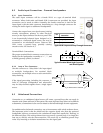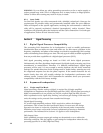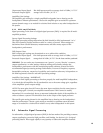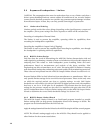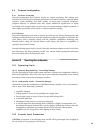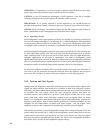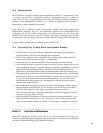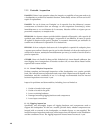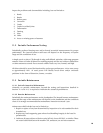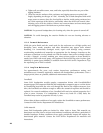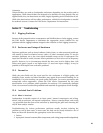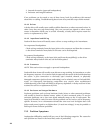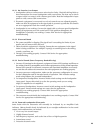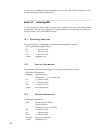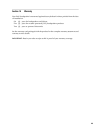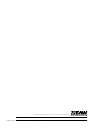
Inspect for problems and abnormalities including, but not limited to:
1. Bends
2. Breaks
3. Broken parts
4. Corrosion
5. Cracks
6. Cracks in welded joints
7. Deformation
8. Denting
9. Wear
10. Holes
11. Loose or missing parts or fasteners
11.2 Periodic Performance Testing
Periodically perform listening tests and/or formal acoustical measurements for proper
performance. The interval between such tests will depend on the frequency of system
usage and the conditions of use.
A simple test is to play a CD through it using well-defined, articulate, wide-range program
material. Listen to ensure all drivers are working properly and for any evidence of distortion
or other extraneous sounds. Test at several volume levels: very low, normal, and high.
All drivers should be tested for functionality and proper performance. A sine wave sweep
at approximately 10% of rated power will usually reveal driver and/or enclosure
problems in the form of distortion, buzzes, or rattles.
11.3 Periodic Maintenance
11.3.1 Periodic Acoustical Maintenance
Normally, no periodic maintenance, beyond the testing and inspections detailed in
Sections 11.1 and 11.2, is required to maintain the acoustical performance.
11.3.2 Routine Maintenance
Periodically do routine maintenance on the loudspeaker. The interval between maintenance
times and the scope of the maintenance will depend on the installation and the conditions
of use. It is strongly recommended that maintenance intervals not exceed 1 year.
Maintenance shall include but not be limited to:
1. Repair or replace of any item determined by inspection to be sub-standard for their
intended use.
2. Replace any load supporting parts whose load handling integrity is the least bit
questionable.
3. Lubricate all parts subject to friction using WD-40, Scott oil FS365, or similar. These
are water-based lubricants with machine oil, surfactant, an anti-rust treatment.
19



